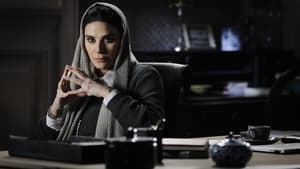Seasons and episodes
 1 - 1Episode 1 Mar. 06, 2024
1 - 1Episode 1 Mar. 06, 2024 1 - 2Episode 2 Mar. 13, 2024
1 - 2Episode 2 Mar. 13, 2024 1 - 3Episode 3 Mar. 20, 2024
1 - 3Episode 3 Mar. 20, 2024 1 - 4Episode 4 Mar. 27, 2024
1 - 4Episode 4 Mar. 27, 2024 1 - 5Episode 5 Apr. 03, 2024
1 - 5Episode 5 Apr. 03, 2024 1 - 6Episode 6 Mar. 27, 2024
1 - 6Episode 6 Mar. 27, 2024 1 - 7Episode 7 Apr. 17, 2024
1 - 7Episode 7 Apr. 17, 2024 1 - 8Episode 8 Apr. 24, 2024
1 - 8Episode 8 Apr. 24, 2024 1 - 9Episode 9 May. 01, 2024
1 - 9Episode 9 May. 01, 2024 1 - 10Episode 10 May. 08, 2024
1 - 10Episode 10 May. 08, 2024 1 - 11Episode 11 May. 15, 2024
1 - 11Episode 11 May. 15, 2024 1 - 12Episode 12 May. 24, 2024
1 - 12Episode 12 May. 24, 2024 1 - 13Episode 13 May. 29, 2024
1 - 13Episode 13 May. 29, 2024 1 - 14Episode 14 Jun. 05, 2024
1 - 14Episode 14 Jun. 05, 2024
Creator
Cast
Video trailer
Synopsis
Snake of Tehran Series
The “Snake of Tehran” series, written by Peyman Maadi, produced by Javad Farhani, and directed by Saman Moghaddam, is currently airing on Home Show Network. The “Snake of Tehran” series is the second collaboration between Peyman Maadi and Saman Moghaddam after the film “Cafe Setareh.”
Story of the “Snake of Tehran” series:
The story revolves around Arman Beyani, a critic and filmmaker, who is well-known among filmmakers and theater people. Despite his passion for filmmaking, he has not been able to make any films until the age of fifty. He gets involved in a murder case called the “Snake of Tehran.” The “Snake of Tehran” is the name chosen by journalists and media because the killer first poisons the victims and then watches them die. Arman pursues the case of the “Snake of Tehran,” not because of the method of murder but because of the personal reason behind the killer’s motive. All the victims had a history of childhood abuse, and since Arman himself was abused by his father, he intends to make a film about this killer.
Review of the “Snake of Tehran” series:
The series deals with a common and everyday theme in the cinema and series industry (serial killer). The serial killer theme, which is a combination of mystery, adventure, chase and escape, and revenge, can be an interesting and exciting subject for audiences. However, the distinction of “Snake of Tehran” from other works lies in the writer’s and director’s perspective.
Instead of the usual forms (from the perspective of the killer or the police), the writer has entrusted the perspective to filmmaking, wanting to make a film based on a case that has plunged Tehran into chaos and anxiety. Alongside making the film, considering his background as a critic and his sufficient knowledge in the field of film and film psychology, he imagines behavioral similarities with the “Snake of Tehran” and believes he could have poisoned the victim instead of the killer, and the killer could have critiqued his films instead.
In the first part of “Snake of Tehran,” we realize that we are facing a work whose characterizations are engineered and completely have a background and pre-story.
Despite being story-centric, Iranian films with a psychological root and the theme of serial killers, although story-driven, must have precise and unquestionable character development because characters may encounter multiple problems during the story, leading to viewer questioning. If the question about the character itself (not the story) is left unanswered, the loopholes in the screenplay become apparent. In the first part of “Snake of Tehran,” all the questions of the screenplay were answered. The hero is Arman Beyani and wants to make his first film based on a murder case, but the police and government agents do not want Arman to get close to this case. If he doesn’t make this series, he cannot fulfill his wish (making a film before the age of fifty) and remains unsuccessful.
The contradictory behaviors of the killer and his empathy in “Snake of Tehran” series are very similar to a serial killer in America, who is considered one of the most popular serial killers in America because, like him, his victims have a history of childhood abuse. This can help arouse the emotions of the audience (creating a sense of empathy, sympathy, and shared pain).
“Snake of Tehran” can be one of the successful projects on the home series network.
Cast and Crew of the “Snake of Tehran” series:
Writer: Peyman Maadi, Director: Saman Moghaddam, Producer: Javad Farhani
Cinematography: Morteza Ghaffari, Planning Director: Ali Shams, Sound Director: Mahmoud Khorsand
Sound: Iraj Shahzadi, Scene Designer: Kamyab Amin-Eshayari, Costume Designer: Iman Omidvar, Editor: Siamak Mahmandoust
Music: Amir Tousi, Production Manager: Amir Yamini, Scene Secretary: Donya
Actors: Peyman Maadi, Sahar Dolatshahi, Azadeh Samadi, Pejman Jamshidi, Marila Zarei, Mahsa Hajazi, Bahador Maleki, Bahar Ghafarian, Niloufar Kokhani, Touraj Aslani, Amir Ahmad Ghazvini, Mohammad Sadeghi Mehr, Majid Jozani, Mahour Namati
One of the professional characteristics of Saman Moghaddam’s biography is that during his tenure, he has been present both on television and in cinema. Saman Moghaddam is known more as a cinema director because fifty-three percent of his works are cinematic, and forty-seven percent are television. In fact, out of the total of fifteen works in his resume, he has been active in eight works in cinema with the names of the films “Nahang-e Anbar Do: Selection-e Roya,” “Nahang-e Anbar,” “Yek Eshghe Sadeh,” “Sad Sal Be In Salha,” “Cafe Setareh,” “Max,” “Party,” and “Siavash” and seven works in television with the names of the series “Divar Be Divar Do,” “Divar Be Divar,” “Ghalbe Yakh” (Season Three), “Shams al-Amareh,” “Shahkalid,” “Paridokht,” and “Hamraz.”
Peyman Maadi started his career by writing screenplays. His first experience was writing the screenplay for the film “Avaz-e Ghoo” in 2000. He continued to write until he met Asghar Farhadi. This acquaintance, which was initially for screenwriting, with the offer of acting by Asghar Farhadi, brought Peyman into the acting arena in the film “About Elly.”
Screenplays written by him (in chronological order): Avaz-e Ghoo (2000), Atash (2003), Koma (2003), Cafe Setareh (2005), Sham-e Aroosi (2006), Barf Ruye Kajha (2011), Bombe Yek Asheghaneh (ongoing).

















one of the best series I’ve seen lately,beautiful
tabrik be peyman moadi va yaaraan, va tashakor baabate zarif tarin seriali ke ba’d az saalha didam. negaahe doorbin fogholaade bood va senario va hameye naghsh aafarini haa ham. Dam garm!
The best music choice ever!
آیا آخرین قسمت شماره ۱۴ بود یا دنباله داره؟
قسمت 14 قسمت آخر بود
One of the best series ! It’s very professional in every single way ! Best Act , best music , best subject…..